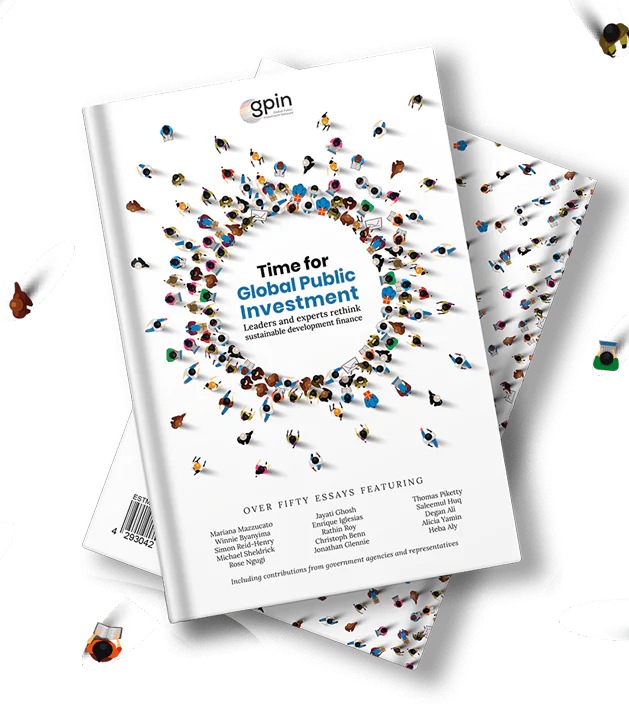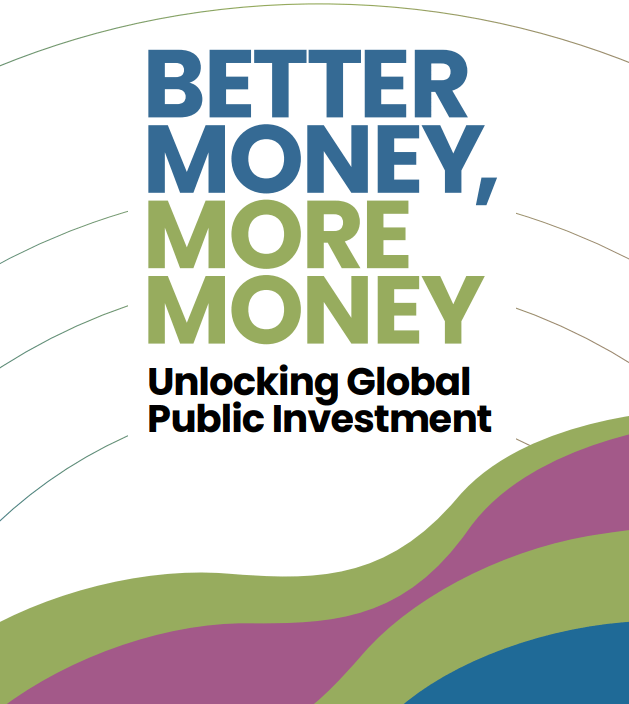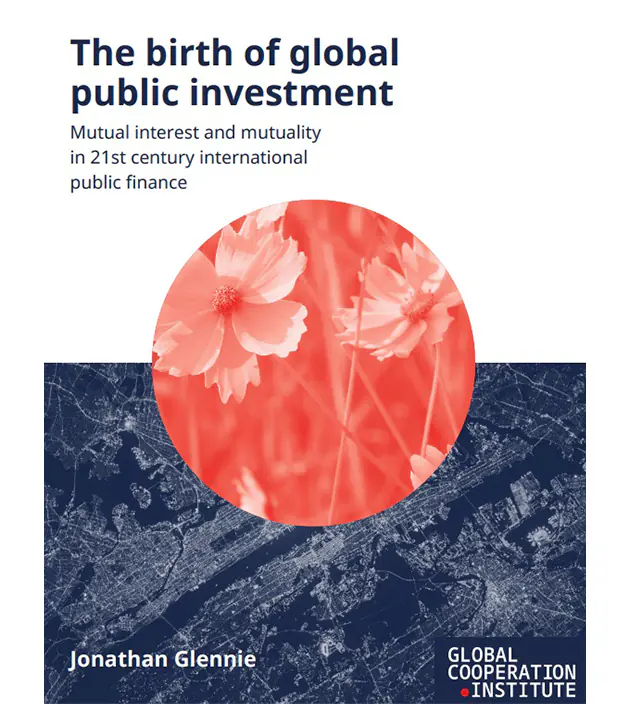TIME FOR GLOBAL PUBLIC INVESTMENT
The report where experts around the world boldly reimagine sustainable development finance.
With contributions from Mariana Mazzucato, Jayati Ghosh, and Thomas Piketty, as well as from representatives of Norway, Chile, and Colombia. This report lays the case why global public investment is the closest thing to a new and shared vision for a universal and lasting transformation of the international development architecture.


